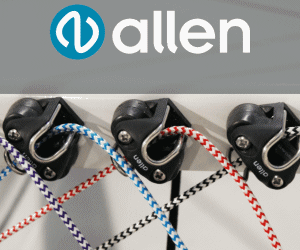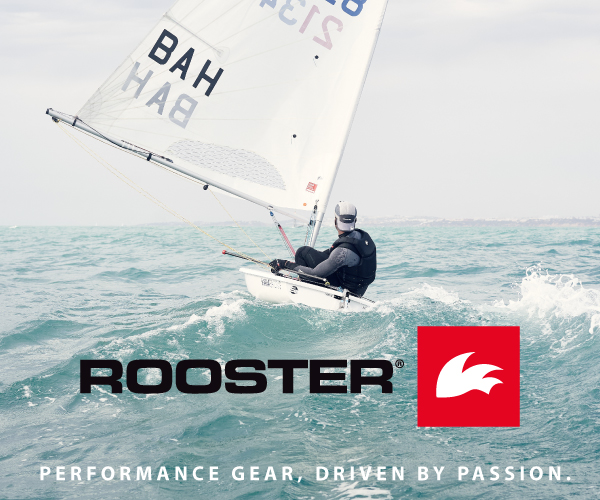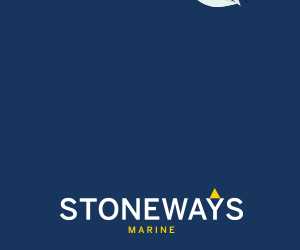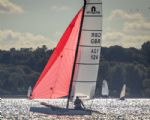Scoring Boats NSC |
Post Reply 
|
| Author | |
Brass 
Really should get out more 
Joined: 24 Mar 08 Location: Australia Online Status: Offline Posts: 1151 |
 Post Options Post Options
 Quote Quote  Reply Reply
 Topic: Scoring Boats NSC Topic: Scoring Boats NSCPosted: 06 Oct 20 at 8:38pm |
|
There has been quite extensive discussion about the requirements of race committees for scoring boats NSC in accordance with RRS 2021-24 rules A5.1 and A5.2 in racingrulesofsailing.org thread Queries on "Finish" and DNF"
I have prepared a paper attempting to pull together the various views (obviously with a preference for my particular views). I propose to post the various sections of the paper separately, a few days apart, to facilitate discussion. You can follow and contribute to the discussion at Scoring Boats NSC |
|
 |
|
Brass 
Really should get out more 
Joined: 24 Mar 08 Location: Australia Online Status: Offline Posts: 1151 |
 Post Options Post Options
 Quote Quote  Reply Reply
 Posted: 20 Oct 20 at 6:55am Posted: 20 Oct 20 at 6:55am |
|
Scoring Boats NSC
Introduction Introduction of NSC The Racing Rules of Sailing 2021 – 24 introduces a new category of scoring, ‘NSC’, to be applied by the race committee without a hearing to boats that do not sail the course, by inserting ‘did not sail the course’ into the lists of categories to be scored by the race committee without a hearing in rules A5.1 and A5.2. These changes were made according to Proposal 4 of Submission 139-18 considered at the 2018 and World Sailing Annual Conference which included 4 parts: • Part 1: Insert a definition of ‘sail the course’ based on the string part of rule 28.2. • Part 2: Delete the ‘string part’ of rule 28.2, and base rule 28.1 on the newly defined term ‘sail the course’ • Part 3: Insert a requirement that a boat must ‘sail the course’ into the definition of finish. • Part 4: Amend rules A4.2 and A5 (new rules A5.1 and A5.2) to include a requirement to score a boat that did not sail the course [N]SC without a hearing. The insertion, by Part 3, of ‘sail the course’ into the definition of finish was reversed by Submission 129-19.
Parts 1, 2 and 4 were implemented in the published version of the new rules.
Purpose and reasons
The purposes and reasons for Proposal 4 stated in Submission 139-18 were relevantly to Part 4 as shown below: • Purposes: - to clarify and simplify all rules that refer to a boat ‘sailing the course’• Reasons - Under the current rules, if the race committee believes from its observations that a boat has made an error in sailing the course, it is required to score the boat in her finishing position and then protest her for breaking rule 28. If Proposal 4 is accepted, the committee will be permitted to score such a boat ‘[N]SC, thereby penalizing her without a hearing. The introduction of NSC raises some practical issues which are discussed below. • What are and are not the new obligations of race committees with respect to NSC; • How the race committee should perform its new obligations; and • Protest committee considerations. New obligations of the race committee
Obligation to score boats NSC New rules A5.1 and A5.2 create a new duty for race committees to score boats that do not sail the course NSC, without a hearing. This duty will come into play when the race committee comes into possession of evidence that proves that a boat has not sailed the course.
No obligation to monitor
It has been suggested that NSC puts an onus on the race committee to monitor each boat to check if it sails the course. These words in italics are quoted from Submission 129-19. These words do not refer to the introduction of NSC by means of the amendments to rules A5.1 and A5.2 as finally approved.
Rather they refer to the previous amendment of the definition of finish, proposed by Part 3 of Submission 139-18, which added a requirement to have ‘sailed the course’ into the definition of Finish. That is what would have created the unachievable onus on the race committee to monitor boats sailing the course.
Submission 129-19 removed the requirement that boats must sail the course to comply with the definition of finish. This removed the ‘unachievable’ onus to monitor all boats and all marks. There is no new onus or obligation on race committees to monitor boats or marks arising from the introduction of NSC and changes to rules 5.1 and 5.2. Obligation to consider records and observations
I suggest that where the race committee is already taking responsibility to monitor boats or marks, by, for example observing and recording mark roundings, it is then obliged to pay attention to those observations and records to identify boats that have not sailed the course and score them NSC. Likewise, where the race committee’s finishing records show that a boat could not possibly have sailed the course in the time recorded the race committee should score her NSC.
How the race committee should perform its new obligations
Direct Observation The reasons for the introduction of NSC in Submission 139-18 indicate that the primary intention was to expedite the scoring of boats that the race committee directly observed to have not sailed the course. The race committee may, however, score boats NSC in any other circumstance where it has evidence that proves the matter. Care and caution
Race committees should score a boat NSC only when there is clear evidence that proves that a boat has not sailed the course. Race committees should beware of mistakes, and desirably obtain more than one source of evidence, for example, mark-rounding lists, significantly inconsistent finishing time or place, or incidental observations on the water by the race committee or judges, before scoring a boat NSC.
Race committees should not score a boat NSC on weak or speculative grounds and cast an onus on the boat to retrieve her position by requesting redress.
Standard of proof, evidence and weighing evidence
The standard of proof the race committee is required to apply is on the balance of probabilities, or preponderance of evidence. There is no reason why race committees should not consider evidence in any form, provided that they consider the merits of the evidence, and the well known reservations about some forms of evidence.
Forms of evidence that may be considered include:
• Observations and records of the race committee itself; • Reports from other race officials; • Reports from outside observers; • Reports by competitors, within the limitations of evidence given by interested parties; and • Video or photographic evidence, within its limitations. Notice to boats to be scored NSC and ‘hearings’ by the race committee
Race committees are not obliged to give any notice to or have any discussions with a competitor before scoring them NSC. As discussed in Submission 139-18, any lack of procedural fairness or due process arising from not informing the competitor can be cured by the boat requesting redress, with the full formality of a redress hearing. Race committees may communicate with competitors who they are considering scoring NSC so if they wish. In any discussions with competitors, care must be taken:
• That the burden of proof is not placed on the competitor to prove that they did sail the course: the race committee is seeking evidence that they did not sail the course. • There is no appearance of threats or bargaining, for example ‘if you do not do X you will be scored NSC’. Race committees should not conduct ‘hearings’: they have no power to do so, and race committee members who are not also judges may lack the experience and expertise to do so. If it is necessary to weigh conflicting evidence, race committees may choose to refer the matter to a protest committee by protesting the boat concerned.
Responding to complaints and enquiries from competitors
Sometimes race committees receive complaints or enquiries from competitors about boats not sailing the course. Under the old rules, a proper response to such enquiries would have been to advise the enquirer that if they thought that a boat had broken a rule and should be penalised they should protest the boat.
Now that the race committee has the responsibility to score boats NSC, the race committee should respond more positively. It should review its records and observations to identify any evidence, such as highly inconsistent or impossible performance, and if that evidence proves that a boat has not sailed the course, score her NSC accordingly. Where the race committee cannot be satisfied that a boat has not sailed the course, it may protest the boat, or advise a complaining boat to protest, if they wish to do so.
A similar process should be applied to credible complaints and enquires from persons who are not competitors.
Protest committee considerations
Boat can be penalised by being scored NSC without a valid protest NSC is now a penalty that can be imposed on a boat without a hearing under rule A5.1, and is specifically exempted from the requirements of rule 63.1 for a valid protest hearing. A protest committee may decide that a boat is to be scored NSC in a redress hearing. Natural justice – boat needs to be represented in hearing
The usual way a NSC scoring issue will come before a protest committee is as a result of a request for redress by a boat that has been scored NSC by the race committee. Otherwise some other boat may request redress for an improper action or omission of the race committee in not scoring a boat NSC. Where a protest committee considers a request for redress not initiated by the boat alleged not to have sailed the course, natural justice or due process demands that, unless the redress is promptly denied, the boat alleged not to have sailed the course must be afforded the rights of a party to hear all evidence, question witnesses and make submissions to the protest committee. If the protest committee is concerned about this it may use the mechanism of calling a hearing under rule 60.3(b) to consider redress for that boat, and combining that hearing into the hearing of other request.
Edited by Brass - 20 Oct 20 at 11:59am |
|
 |
|
Post Reply 
|
| Forum Jump | Forum Permissions  You cannot post new topics in this forum You cannot reply to topics in this forum You cannot delete your posts in this forum You cannot edit your posts in this forum You cannot create polls in this forum You cannot vote in polls in this forum |
Bulletin Board Software by Web Wiz Forums® version 9.665y
Copyright ©2001-2010 Web Wiz
Change your personal settings, or read our privacy policy
Copyright ©2001-2010 Web Wiz
Change your personal settings, or read our privacy policy





-(1)-202408140552.gif)


















 Printable Version
Printable Version Delicious
Delicious Digg
Digg Facebook
Facebook Furl
Furl Google
Google MySpace
MySpace Newsvine
Newsvine reddit
reddit StumbleUpon
StumbleUpon Twitter
Twitter Windows Live
Windows Live Yahoo Bookmarks
Yahoo Bookmarks Topic Options
Topic Options